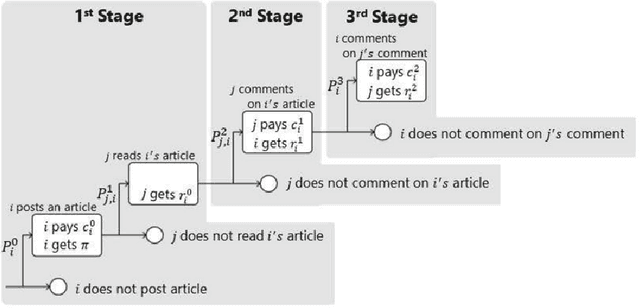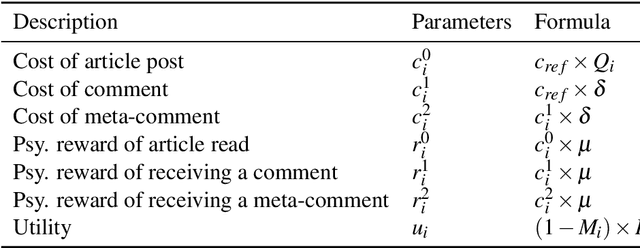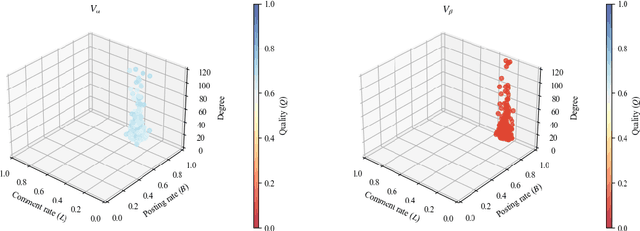Shintaro Ueki
User's Position-Dependent Strategies in Consumer-Generated Media with Monetary Rewards
Oct 07, 2023Abstract:Numerous forms of consumer-generated media (CGM), such as social networking services (SNS), are widely used. Their success relies on users' voluntary participation, often driven by psychological rewards like recognition and connection from reactions by other users. Furthermore, a few CGM platforms offer monetary rewards to users, serving as incentives for sharing items such as articles, images, and videos. However, users have varying preferences for monetary and psychological rewards, and the impact of monetary rewards on user behaviors and the quality of the content they post remains unclear. Hence, we propose a model that integrates some monetary reward schemes into the SNS-norms game, which is an abstraction of CGM. Subsequently, we investigate the effect of each monetary reward scheme on individual agents (users), particularly in terms of their proactivity in posting items and their quality, depending on agents' positions in a CGM network. Our experimental results suggest that these factors distinctly affect the number of postings and their quality. We believe that our findings will help CGM platformers in designing better monetary reward schemes.
Effect of Monetary Reward on Users' Individual Strategies Using Co-Evolutionary Learning
Jun 01, 2023



Abstract:Consumer generated media (CGM), such as social networking services rely on the voluntary activity of users to prosper, garnering the psychological rewards of feeling connected with other people through comments and reviews received online. To attract more users, some CGM have introduced monetary rewards (MR) for posting activity and quality articles and comments. However, the impact of MR on the article posting strategies of users, especially frequency and quality, has not been fully analyzed by previous studies, because they ignored the difference in the standpoint in the CGM networks, such as how many friends/followers they have, although we think that their strategies vary with their standpoints. The purpose of this study is to investigate the impact of MR on individual users by considering the differences in dominant strategies regarding user standpoints. Using the game-theoretic model for CGM, we experimentally show that a variety of realistic dominant strategies are evolved depending on user standpoints in the CGM network, using multiple-world genetic algorithm.
 Add to Chrome
Add to Chrome Add to Firefox
Add to Firefox Add to Edge
Add to Edge